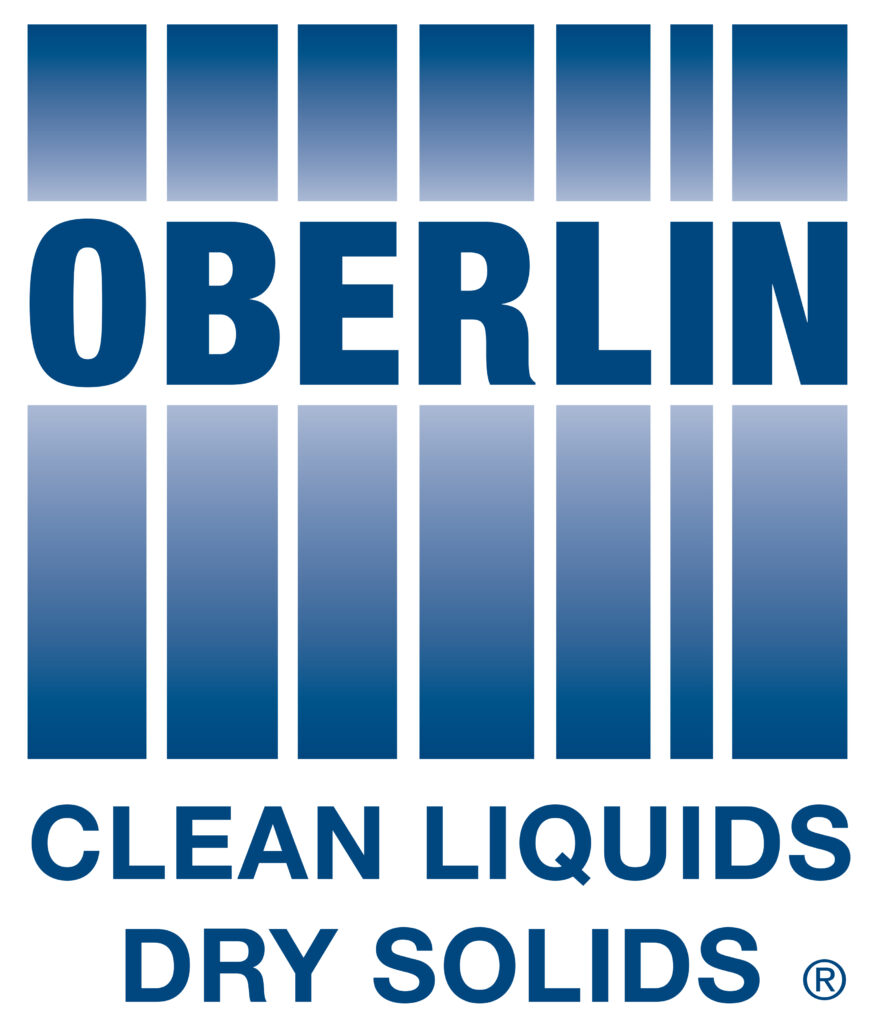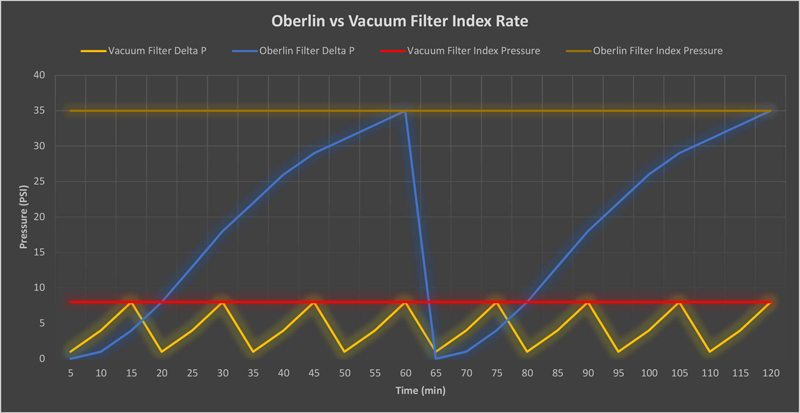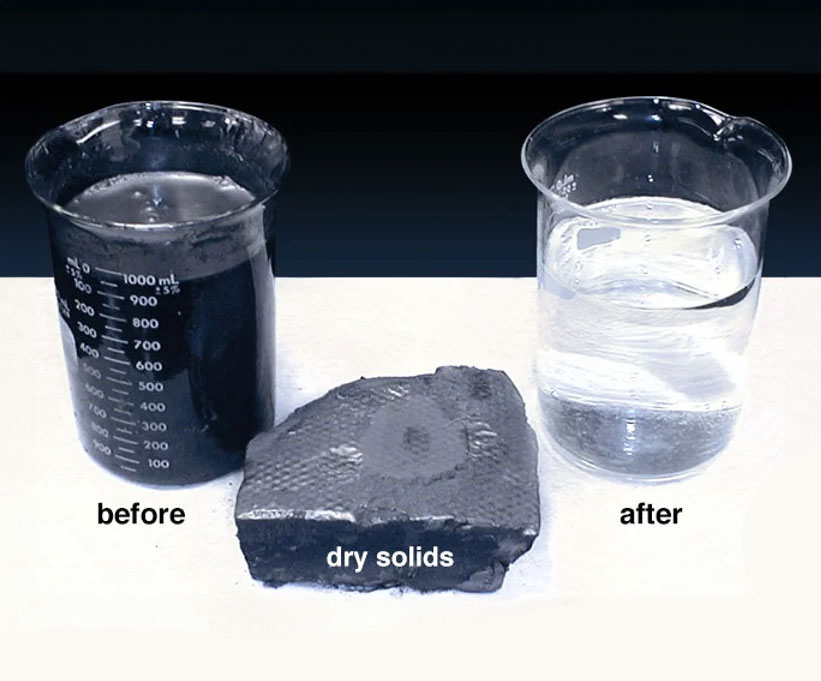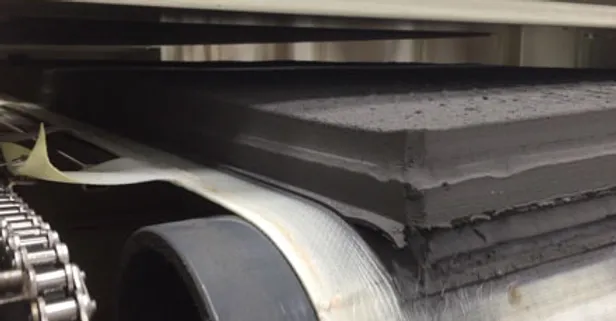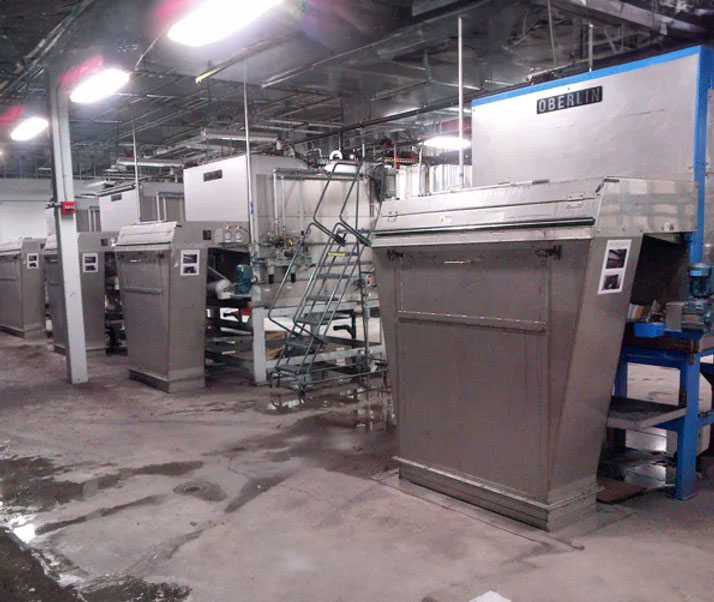how an oberlin pressure filter works
Fully Automatic | 1 Micron Filtration | Dry Solids Discharge (Up to 95% Dry By Weight)
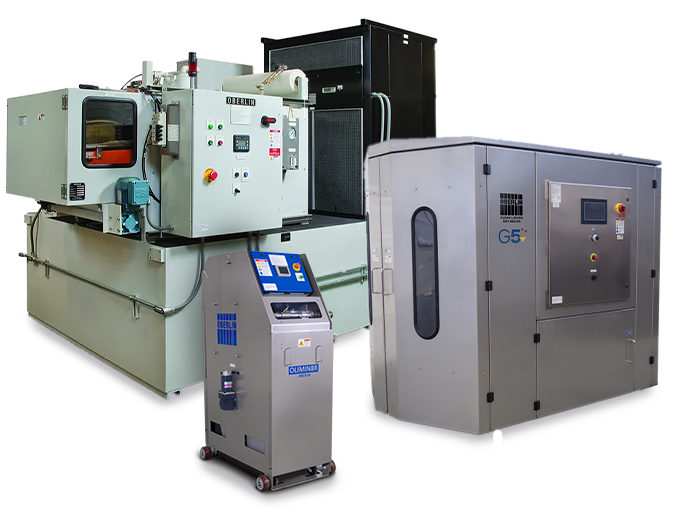
Oberlin Pressure Filters are fully automatic filters that operate at up to 40-psi differential pressure to remove solids from liquids. The result is filtrate quality down to 1 mg/L at 1 micron and dry solids discharge at up to 95%. The Oberlin Filter is extremely versatile and is able to handle both extremes of the filtration spectrum
- High solids (1% – 20% for many applications) – If it can be pumped, it most likely can be handled by an Oberlin Filter
- Low solids polishing – Filtration down to 1 micron. The Oberlin Filter can function as an automatic 1-micron cartridge filter.
BETTER UNDER PRESSURE
Oberlin's Fundamental Difference
All filters utilize a force: primarily Gravity, Vacuum, or Pressure to drive fluid through a barrier (filter media) where the solids are collected.
Higher differential Pressure across the media translates to more and finer particles being removed – and a better, more efficient filter.
Differential Pressure (Delta P) of 30-40 PSI is typical of an Oberlin Filter. Competing vacuum filters struggle to achieve 7.5 psi, gravity filters are even less.
Pressure drives longer cycles, using less media and building thicker filter cakes.
Thicker filter cakes, or Depth Filtration, trap smaller particles and provide Ultra Clean Fluid.
99.99% of total suspended solids removed from liquid
The filtered solids are extremely dry—no further dewatering is necessary
Examples of Dryness by Solids Type
- 75%-95% Crystalline and Rigid Shaped Particles
- 45%-65% Diatomaceous Earth/Filter Aid Backwashes
- 30%-40% Metal Hydroxides
Completely Automatic
The filter cleans liquids and discharges solids in a completely automated process. An operator is not needed to remove solids or clean the inside of the filter. The dry filtered solids discharge automatically into a bin. This provides for greater safety when hazardous materials are involved.
Using pressure and a cake of filtered solids for ultra fine filtration
The Oberlin Filter pumps dirty liquid through a very tight media in a self-contained chamber. Solids build into a cake on the media, which catch even more solids. Pressure continues to force the liquid through the densely packed cake and media. The filtered liquid is incredibly clean with nearly all solids removed down to 1 micron in size. For a reference in scale, 70 microns is the average diameter of average human hair.
High Flow Rates
While flow rates will vary by application, the Oberlin Filter delivers high flow rates for its compact size. For some applications, our smallest filter will have a capacity of 80 GPM and our largest filter will process 2,000 GPM. They can be grouped together for larger capacities, or full redundancy.
Large Scale Projects
The Oberlin Filter is used in large-scale projects in a variety of filtration applications including metalworking, metal-finishing, hot oil and chemical processes. The world’s largest manufacturers rely on Oberlin to reliably deliver clean liquid for re-use or disposal, while at the same time minimizing fluid loss and solids disposal cost.
Semi-Permanent Filter Belts
Oberlin has been building paperless filters since the beginning. Our cleanable belt systems have been saving customers thousands of dollars annually in media costs. In the case of a change in application or process, all Oberlin pressure filters with belts are engineered to also use disposable filter paper.
Disposable Filter Paper
The Oberlin Filter uses up to 20 times less paper than vacuum or gravity filters. Pressure drives longer cycles, using less media and building thicker filter cakes. Thicker filter cakes, or Depth Filtration, trap smaller particles and provide Ultra Clean Fluid.
Reusable Belt Filter:
Coolant filtration for steel bearing grinding application. Filter cake discharge of grinding swarf shown.
Disposable Filter Paper:
Hot frying oil filtration in a coated chicken application. Filter cake discharge of breading shown.
